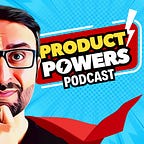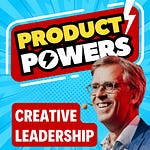This episode was recorded in 2019 during lockdown and published on my first podcast titled The Peaky Agilist. The episode has been remastered and re-shared here. Join Paddy as he delves into the extraordinary journey of a nuclear submarine commander who found himself in uncharted leadership territory. Through the lens of his experience, we explore the challenges of relinquishing control and embracing empowerment within a high-stakes environment.
👉🏽 Unexpected Assignment - A seasoned commander takes on the Navy's worst-performing submarine, triggering a reevaluation of leadership.
👉🏽 Empowerment Over Command - Discover how empowering the team over issuing orders leads to surprising outcomes and boosted morale.
👉🏽 Modern Leadership Shift - Learn how the shift from industrial-age hierarchy to adaptable empowerment is reshaping leadership paradigms.
Join us to uncover the transformation from control to empowerment in leadership.
David Marquet (Author of Leadership is Language)
L. David Marquet is a retired United States Navy captain and the bestselling author of Turn the Ship Around and Leadership is Language. He was the commander of the submarine USS Santa Fe. He turned the submarine from the worst in the fleet to the most successful by using a "leader-leader" model of leadership. He became captain of the submarine in 1999 and, since his retirement, the submarine has continued to win awards.
Since then he has worked as a leadership expert and speaks to audiences globally about creating workplaces where people are healthier and happier because they have more control over their work. He taught previously at the Columbia University School of Professional Studies.
⚡️ In each episode, Paddy Dhanda deep dives into a new human Superpower and practical advice on how you can apply it immediately.
👉 Sign-up to Newsletter: https://www.superpowers.school/subscribe
👉 YouTube: https://www.youtube.com/c/paddydhanda/
★ BUY ME KO-FI ★
If you enjoy the podcast, then you can donate a small amount here as a token of your appreciation: https://ko-fi.com/paddydhanda
Transcription:
[00:01:01] Paddy Dhanda: Thank you for joining me for another episode of the Superpower School podcast. I'm your host, Paddy Dhanda, and today I have an apology to make. When I first started this podcast, I made a commitment to myself and the listeners that I would publish at least one episode per week. I've consistently been publishing episodes for over 17 months and never missed a single week, but last week I failed on that commitment, so I'm holding my hands up.
It's the summer holidays and family commitments took over. So I'm hoping to make it up to you by bringing you a very special episode.
Way back in 2019 when I started my very first podcast titled The Peaky Agile List. I attended a book launch in London. It was a launch of the amazing book titled, leadership is Language by One of My Heroes in the Leadership Domain, Mr.
David Marque. Many of you will know David for his bestselling book. Turn the Ship Around. When I met David at the book launch, I plucked up the courage to ask him if you'd join me as a guest on my new podcast, and he politely agreed. What many don't know is that I had no idea how to launch a podcast at the time.
I had no proper microphone or any know-how on the types of apps I needed to actually do the recording. How could I possibly miss out on securing one of the most famous leadership thought leaders as my very first guest? So for this episode, which was recorded around the time of lockdown, I've remastered the audio because I wanted to share that conversation with you since it's so relevant, even post covid, especially in today's world of AI and so much uncertainty.
If you are looking to change your language at work so that you can create more impact with your teams and add to your leadership knowledge, then this episode is definitely for you.
[00:03:13] David Marquet: I was a nuclear submarine commander, which is a job that tends to attract people who like to be in control of things.
And there's a to, to a degree you want that? But my story was I came up through this regime where I was being promoted because I was so good at telling people what to do. And at the last minute, after 12 minutes of preparing to go to one submarine, I was shifted to one of the newest submarines in the fleet, a kind of submarine I'd never been on before.
And it was Alice in Wonderland for me. And oh, by the way, it was the worst performing submarine in the Navy with the worst retention and the worst morale. And the reason I went there on short notice is because the previous captain quit, which is you can get fired, but quitting is very no one ever heard of that.
So they, the Navy says, oh, you got two weeks, you're gonna go over to the Santa Fe. Yeah, it's a different kind of submarine. Yeah, it's the worst submarine. And. You can't fire anyone and the schedule's not gonna change, and they've got the worst morale and retention, go fix it. So I show up, but, and my mindset is, even though you are walking around, you see equipment, you don't know, you don't know how the buttons work, but you still in this mindset of telling people what to do.
It's so deeply ingrained. And the crew, to be honest, was okay with that. They were like, yeah you're the captain. You tell us what to do. And I gave an order re like the first day at sea that couldn't be done. And the officer repeated it, knowing it was a BSS order. It was very simple.
It was basically like shifting into second gear on a car that but you only had one gear. On this motor, and so nothing happened, nothing bad happened, but it just really blew me away that knowing that there was no second gear, the officers still repeated my suggestion and I got the officers together and my instinct was to say, okay, look, you guys need to be empowered.
You guys need to speak up. You guys need to blah, blah, blah. It was all about you guys. I'm fine. It's not about me changing. That's too hard. Right. And eventually it got reflected back to me that really it was my behavior. It wasn't about them. It was about me. So instead of whining that, hey, my team's not taking initiative, so therefore I have to tell 'em what to do, it's.
It's the reason your team's not telling, taking initiative is 'cause you keep telling 'em what to do. So the first step is to stop telling people what to do. And you have to lean back. There's this thing, oh, lean in. I'm gonna lean into you, you're gonna lean into people below you and it's direct.
Direct. And then you report back. And it's this cascading sense of control down the organization. And I think that what the reason we do that is because, Partly it's a biological thing, but also it's an industrial age structure. That's how we aggregated industrial age workers and we could chunk the work into smaller and smaller pieces that required less and less thinking, therefore less and less education.
Therefore, I could pay people less and less. And so now I have a hundred workers each doing one tiny thing making a car, all of them getting paid. As little as possible to maximize the profits, but there's no thinking there. And obviously today and especially what's going on in the world with coronavirus thinking, not just, oh, the people at the top do the thinking and everyone else does what they're told.
That is not, that's the fundamental and industrial aid structure, but it's embedded in so many organizations. Today we don't even realize it. Oh, you can do it different. Yeah. Everyone can think, oh, how does that work? So that's the whole idea. And so what, when I started leaning back, I said, well, you guys just tell me what we should do.
Well, we what you intend to do? If I weren't here, what would you do if I weren't here? And it's just a trick really to get people to talk, to expose their thinking to be thinking and make decisions. But it's really uncomfortable because as for the leader, because you're like, let's see what happens.
And there's this like sense of pause this sense of, well, if I just told 'em what to do, we'd move forward. That gets in the way of developing leaders. So everything about the way I was taught about leadership, I was just asked the opposite question and it almost always, it was right. I, it was more useful, I guess is a better way to say it.
So instead of giving a lecture I call it, so you want culture change? We did culture change. How does it work? Very simple. The traditional approach to cultural change is two steps. I change your thinking and then you'll change your actions. I think this is wrong. I think the right approach is let's change our behaviors in a small way and that will affect our thinking.
So for us it was very simple things like, hey, don't refer to that person over there in the supply department as they refer to them as we. So that's an action change, but the thinking then becomes, oh, it feels like a team. The team boundary spans across. On, on and on. So we just acted our way to new thinking.
And for us, it just always went back to language over and over again. We would be like, why don't we say it differently? Why don't you say it like this? Try saying it like this. And a lot of it had to do with me asking questions in a different way. And that's what this new book. Leadership is language is all about.
[00:08:52] Paddy Dhanda: Thank you for that, David. And if you could just quickly take us back to maybe those first few days of being thrown in this situation, being put in charge of this submarine. That was probably a bit like in, in probably soccer terms, Norwich city football team, the bottom of the league and turning that sort of team into almost the Liverpool of the premiership.
Yeah. Those first few days, I mean, what was the reaction of the crew? How did you deal with their attitudes towards you? Was there any resentment? Maybe describe that as a leader going into that situation.
[00:09:26] David Marquet: I felt off balance. I go onto the submarine. I'd always been rooted in knowing the right answer.
I, in nuclear submarine, it's all about being technically, Competent and correct and knowing the right answer. I can write an equation for the nuclear power plant. I could repeat the set points. I memorized it is knowing the right answer and I get thrown into the situation where I'm walking around and I don't know the right answer.
I don't, I know theoretically what we're trying to do, obviously, but I don't know which button to push on the machine to make it happen. Now, as a captain, you don't normally push the buttons, but you would know which buttons to push. So if the team started falling apart, you say no. Okay. It's in the upper left.
Go down two menu steps. Boom boom. Okay, select this. Boom, okay, there it is. Push. You would know that. And so I felt this weird sense of being off balance. And the first thing that happened was I go into the sonar room and I start asking the sailors about their equipment. Now, in the past, my job was to question, but it was question as in testing, do you know your stuff?
Hey, tell me what this, how's that work? Blah, blah, blah. Because, I would always know, I'd always know how the gear worked. So this time I walk in, I don't really know. So now I'm asking questions from a place of curiosity, but for them, it's still the captain is grilling me with these questions. And finally I say, ah I don't know, I forgot about that.
And as soon as he said that, Everybody looked at me, they were like 10 people. They like their heads like snapped around. And I looked at me because that's when normally you would say the answer. And I was like, oh shit. 'cause I didn't know the answer. And I had this moment where I had these masks where I was just like, okay, pretend to know.
Well you should find out and then come tell me. And you really need to know. And for some reason, this sense of off balance didn't let me go there. And I just said, well, I don't know either. They were all looking at me like, what? You're the captain you're supposed to know. And I had to say over and over again, I tell audiences that in that moment I could feel my heart beating.
My respiration wa was increased. My body temperature was going up. I was sweating. My palms were feeling itchy. And even though it was only five or 10 seconds, it was the scariest thing I did. We did some stuff that would raise the hair on the back of your neck on that submarine in terms of where we drove it and how what we did.
But none of that really was scary for me because we had a highly trained, competent team. And so the physical thing wasn't really scary. But for me, the emotions of admitting I didn't know that was uber scary and. Then when I said that there was this, then it was just like, there's this pause and then like all this cloud the fog just cleared and the masks dropped away, and everyone else could start saying, well, I don't, yeah, let me find out.
As long as you're pretending to know things, as long as it's unsafe to say you don't know, and it starts from the leader modeling behavior, then no one's gonna say they don't know and no one's gonna learn anything. It's all about learning. So, so that launched us into this sort of learning experimental approach.
Now you gotta make informed guesses and a hypothesis and there's part of work where we're gonna research it, and then we're going to make sure to, as much as possible, we're doing the right thing. But there's also part of work where we don't really know, like, we're gonna launch a new product, how's it gonna go?
Well, I can make sure that the product. Is protecting people's privacy. And I can make sure that it's safe from hackers to as much degree as I can, but whether it sells in the market at the price that we think it should is something we don't know. So there's this sort of hypothesis, do it and then let's reflect.
And that's how we approached everything that we did. We did all kinds of fun things. We did crazy stuff like you read in the manual. If you shut off the oxygen gen into the, to the submarine, you have 135 people and you can do calculations. What's the actual average amount of oxygen one person uses per hour and how much is in the submarine?
And you can draw a line and say, okay, at this point everyone's gonna fall unconscious because we don't have enough oxygen. And then now there's precursors before that you get headaches. So we would actually, but rather than rely on the theory, we would just do it. We would just turn off the oxygen and say, Hey, we're gonna run an experiment.
We're turning off the oxygen. If someone's feeling really Ill let us know. We'll turn it back on. And then we just take data for two hours and we'd see like, how did it feel physiologically. When the oxygen got down normally it's around 20%, but then it gets down to 19%, 18%, you start getting headaches.
But like, that's just one example. But we would do all these things. We'd actually do it, and we take that and we'd try it. And this piggy there, there are navy training programs which tap into this idea. We really live this stuff. And so as a result, this crew learned it. The crew became the, one of the most knowledgeable crews I think there was and it was the highest performing crew.
We got the highest score in history in the Navy and the next 12 months, every sailor signed up to stay in. We went from three sailors outta 33 to 33 outta 33.
[00:15:09] Paddy Dhanda: Your first book turn the Ship Around. It's mentioned in literally every agile course out there. Why do you think the book resonated so well with the Agile community?
What elements of your style of leadership that you were evangelizing, kind of resonated with that community most?
[00:15:25] David Marquet: Well, I love Agile. I think there's some things that are just fundamentally. Right and brilliant about it. Now, we didn't know anything about Agile when we were doing this, but there's some fundamental tenets of how we operated, which I think are parallels.
Number one, it's all about getting people to think. It's not, you can't just sit in your room with your arms crossed in a yogi position and just think all day long you actually have to do something. So you have to think about it, then do it, and then reflect and then hypothesize and do it, and then reflect and then hypothesize.
And so this was the rhythm of work. And of course that sounds very, that's sprint planning, sprint, retrospection cycle. It's and the reason we do it is 'cause we wanna activate people's thinking. We say push the authority to information, not push information to authority. The industrial age command and control approach is the people at the periphery of the organization, i e the person looking into the eyeballs of the salesman, the person standing in front of the pump that's vibrating a little bit, unusually the person who's in the code.
They have the most information about. What's going on, but they don't have the authority to make decisions. So the approach is take aggregate the information, fill out a form, goes up the chain, yes, no, launch the product on time. Nope. Do more testing, and it comes back down. And so what we tried to do over and over again was, let's let the person who's closest to the information make.
As many decisions about it as possible, which we again, push the authority to the information, not the other way around. Information authority is separated in hierarchy. I don't think we can get away from that, but it's what do you do about it? That what, that was different. Right. And I think that resonated.
Plus, it's a true story. It's not. Made up. My experience now with Agile groups is they can smell BSS in a nanosecond look, we ran a nuclear submarine this way, so you can probably launch your. Facebook imitation software like this, and
[00:17:32] Paddy Dhanda: it'll probably Okay. It's a pretty, pretty critical piece of work. Yes, absolutely.
Yeah.
[00:17:36] David Marquet: Yeah. So anyway, and it was fun. So I love and I really appreciate what the Agile community does, not just to, for inviting me to go join them and different places to talk, but for making the world a better place for people to go
[00:17:48] Paddy Dhanda: to work. No, absolutely. Teams that really have that right.
Culture and the right environment around them going into Agile, even though it can be quite scary, having that autonomy and being empowered to make those decisions. I think it just boosts morale sky high versus perhaps the more traditional way of working. Going to the new book.
So leadership is language. I love the cover, by the way. The little speech bubble in the Thinking Bubble, and. The sort of the industrial age versus the modern thinking age. Could you explain the concept in the book about red work versus blue work?
[00:18:20] David Marquet: Yeah, so it, it goes back to this rhythm of work, which is we're physically engaged in the world, which is, I call red work.
It's it red work is the work. We're building code, we're assembling cars. We are. Meeting with clients, we're checking someone in at a hotel. We're flying an airplane, we're operating on a patient. It's, it is the work. And then Blue work is thinking about the work. And so there are a couple things.
Number one is, In a lot of empowerment. Well, my experience wasn't, as I started talking about empowering people, is we tended to, I thought inappropriately denigrate the work itself and underappreciate the actual work. We were like, oh, we gonna network. We're gonna meet with people. I'm gonna, you know, connect A to B to C to D.
Yeah. But someone's actually has to still write the code. Right. And so I wanted to elevate the appreciation of the work. And number two is, I, it's too simplistic in my mind to say, well, we used to have these industrial age organizations and it was all about these assembly lines. And now we're just gonna stop and everyone put your pencil down and we're just gonna think That to me was also not right.
And for me it's always the interaction between. Engaging in the world, the physical task, and then thinking about it. And I've been on, I've been over biased on both sides. Sometimes I'm just doing stuff. And I realize sometimes it's it's just for a day. It might be, I did something for a couple years.
I had a job for a couple years. Well, like, what am I doing? I don't. Because there's not enough blue, there's not enough thinking about it. But o other times I've been over biased on the blue side where I'm just, I'm thinking and like, well, what am I gonna do? And it seems really big and overwhelming. Like I don't know where to start.
And in this case, what you need to do is do something small and chunk it very small and just do something, make a hypothesis to say, well, this isn't perfect, but it's. Better than just, I'm not gonna know. If I just keep thinking about it, I'm, I need to actually do it and then see what happened. Writing a book is like that.
You can think and think. I like when you start writing a book, you don't know what it's gonna be. You think you know, but you don't. And it's only by starting to write and say, oh, okay, now I see, oh, this doesn't make, oh, this connects to that. Oh, okay. But it's the action of writing, which will take you there.
So, That's the idea. This should sound super obvious to agile groups because it's exactly like I said with the sprint. What I think what I perceive is to be the sprint process. Now, agile guys will say, oh, well that's not really true. We have a daily standup where there's a tiny bit of thinking in there.
And when I'm doing the code, it's not like I'm not thinking. I still have to make decisions about how to structure the software. And I'm saying, yeah, I'm not saying there's no thinking while you're doing this other red work, but it's recursive. So there's this big thinking. We might take a day to do a retrospective, but then we take an hour to do a morning meeting or 15 minutes, and then we might take 30 seconds.
But the key is, the way we use our brains during these two different processes is different. When you're in the work, it's focused the more focused you can be. That's why when every time I go see these coders, they'll have the headphones on because they're trying to focus, they're trying to exclude distractions.
But when we say, well, what do we learn? What, how can we get new ideas? What other ways could we approach this problem? Now you want broad perspective. So it's a head down focus versus a head up broad perspective. And those are two different ways of using your brain. And it's about variability.
I want, I'm starting the nuclear power plant. I'm in the procedure. I want to go A, B, C, D, I don't want variability. I don't want A, B, D, C, I don't. You don't want that. That means boom bad. So we, when we're making parts on an assembly line, when I am writing code, I don't want. I can't just write random code. It has to be in accord with the language.
So I reduce variability. But when I thinking about it, so before and after, should we start the reactor? Right? When, which team are we going to use? Then I want thinking so. I have to, and if I don't, if I'm not clear about this is embrace variability work and this is reduced variability work, then what happens is that work, it all feels the same.
I'm just broad and I'm focused, but I'm not really uber focused and I'm not really broad. I feel like I am, but I'm not, versus teams that say, Now we're laser focused. Now we're super broad scanning the horizon,
[00:23:20] Paddy Dhanda: which I'm guessing is the core part of the book, the six plays that you've introduced, and that's all about switching between those different modes of working.
Is that, would that be correct?
[00:23:30] David Marquet: Yeah, so my, my, my experience of life was I kept asking questions and I said, why did I ask it that way? That wasn't very helpful. Someone comes up to me and says, Hey, I'd like to delay the software launch the product launch next week. I'm like, what? Why? No. Look, we've talked about this, and so in other words, I'm reacting, I'm responding.
I'm projecting what I think. Versus and I no. Lemme try again. I started by saying, well, why do you wanna do that? But that even that's a little provocative. I was trying to reprogram my brain to just be very neutral. Oh. And be neutral in terms of tone and curious in terms of intent. You gotta start with just, Hey, what do you seeing, what do you see that's seeing as description is safe?
You mentioned before it feels scary and I, and I. And I think that's right, because now I'm taking responsibility for the future, which is unknown. I can be wrong. And so we start with what do you see? Describe the situation what's going on? I. What do you recommend? What do you intend to do? If I weren't here and you had to make this call, what would you do?
So you're basically weaning people of their dependents. I'm coming to talk to you, and what you're doing is you, the mindset is you're building a decision making factory, not you are the decision maker
[00:24:46] Paddy Dhanda: before coming across your work. This perception that. The more that a leader speaks, the better the leader they are.
And something that I've I that really stood out in your book was where you talked about the share of voice and the team language coefficient. And you got a bit mathematical on me on that one. Yeah. And my strong point, so could you just break that sort of concept down a little bit for us, and then just explain what you meant by that.
[00:25:12] David Marquet: Well, you know, I'm a engineer, so I had to have some math in the book, but you don't need, you don't need any math. Everyone intuitively senses this. You go to a meeting and I just ask afterwards, take a card, write down the percentage of words that each person said. The sense is that the higher you are, the more words you're entitled to.
And we know this is scientifically true. We are looking, we looked at transcripts, and one of the stories that runs throughout the book is the transcript of this ship. So it's, they have black boxes like airplanes, but airplane, black box transcripts are not that long. This is 25 hours. The ship sank in a hurricane.
And everyone died, but we have 25 hours of their conversations as they were dealing with decisions about how to avoid the hurricane. And so we analyzed this language in a bunch of different ways, but one of 'em was just a very simply counting the words and every time the captain was on the bridge, so there was the captain and officer, and then a crew member.
So it was three person, team. Every single time the captain said the most number of words and more than half of the words.
Yeah. Then we say, well, the problem is people aren't speaking up. That's not the problem. The problem is you're just talking too much. And what you wanna do in a meeting is we call it leveling the share of voice. So if there's three people you don't want 50%, 40%, 10%, you want 40, 30. 30 or so. Something that's closer to flat.
And there's some work by. A guy named Mal professor Malone at m i t, where he studied this, and it turns out that the more even that share of voice is, the more, the better the team's decisions are because, and it makes sense because you have more information. We call it the wisdom of the crowd versus the wisdom of the loud, which is are just the people.
And by the way, if you're the leader, you already know what you think, so you don't need to say it. Saying what you think results in reducing variability, because as soon as you and some people like deliberately do this, I need to get everyone on board. I wanna build consensus. What is that? It sounds like reduced variability.
That's appropriate for doing work that's appropriate for assembly line work. For thinking you want the opposite. We approach innovation like it's an assembly line and we're confused why it doesn't work. It's 'cause we're applying the wrong playbook. We're applying a reduced variability language and a reduced variability playbook.
I. It doesn't work.
[00:27:52] Paddy Dhanda: And so just going over to the six plays that you have in the book, what was the idea behind having a playbook in the first place?
[00:27:59] David Marquet: I identified I call 'em the six plays from the industrial age. And they all have to do with they stem from two original sins. One is the sense of a bang clock and the second original sin is the fact that we've divided the organization into leaders, followers, management.
Workers, salary people, hourly people, white collar, blue collar. I mean, this dichotomous language is the problem. And so what that means is, oh, we're the thinking group and you're the doing group. We do blue work, you do red work. So for example, the last play in the industrial age is, I call it conform. Play your hierarchical role.
Don't go walking into the boss's office unannounced, conform to your role. You're a doer. Do what you're told. Be a team player. And what I think we need to replace that with is connect. Well, it's interesting. We know that emotions are actually needed in order for you to make decisions. You need your emotions.
And there I talk about a case where. A man had a brain tumor where the surgery was successful. He was just as intelligent as he was before, but he, it affected part of the emotional processing part of parts of his brain, and he just couldn't make decisions. I. And so there, we know healthy emotions are necessary for healthy decisions.
And in the industrial age, I didn't care about your emotional health because I didn't ask you to make decisions. I didn't, I wasn't going to you and saying, well, how should we change the assembly line? Should we even be making cars? Maybe we should be making electric cars. I didn't ask you that. So, Be connecting to you as a human being actually got in the way of me beating you on the head and just coursing you into doing what I needed you to do.
[00:29:50] Paddy Dhanda: Fantastic. And out of the six plays, is there one that really stands out for you, aside from the connect play in terms of helping some of the leaders out there in this current situation? I can imagine. There's panic all around the world right now. We have leaders of big corporates, even team managers trying to deal with lots of uncertainty.
Team members feeling really vulnerable. What would you recommend in, in terms of the plays?
[00:30:17] David Marquet: Most important one, I would say would be the sense of improvement, right? Be because we're in such an unknown time, the leadership of the company can get together and say, okay, here's what we're gonna do. Keyword do, and then they're gonna tell everyone, and it's going to be, maybe it'll work, maybe it won't.
Some people will like it, some people won't. And it's a sense of proving, okay, we're gonna do something. Therefore, that's gonna invoke a mindset of I gotta prove it and do it, versus a sense of improving and learning. So rather than saying that, I say, Hey, we don't know. We don't know any more than you guys like, first of all, admit, say, I don't know, right?
Yep. Right. We don't know how long it's gonna last. We may be locked down six months from now. I hope not. Maybe I don't think so, but we don't know. We may be lifted in a week. I don't know. Coronavirus may research next winter, twice as bad as this. Today, we don't know. This may be something we do like e every year for the next five years.
We may have a period of one month every winter where everyone just, we shift it and we just work from home. We don't know. So here's, let's do this. Let's run into some the, we're gonna couch these things as experiments. Okay, let's try this. Let's see what we can do. Now, a lot of our clients. Some people can work from home, but some people can't.
Oil refineries, nuclear power plants food processing plant. So, but again, it's an experiment. So say, Hey, look, we don't know. Let's try this for the next four weeks. And then reflect. I want everyone's opinion how to go, how can we make it better? And then go, then, okay, let's tweak it, make it a little bit better, and then try it again.
So I think it's this approach of experimentation. It also makes it more like, Hey, it's a little more fun. Hey, here's what we're gonna learn. What can we learn from this? And then maybe there's some stuff we can learn from this about resilience and being independent and working from home that we can then apply.
I mean, there's some good stuff. The canals in Venice, Italy are clean. The skies in Shanghai are clear. There are some good stuff now. It's bad for the airlines and so can we keep some of these good things. And learn from them.











